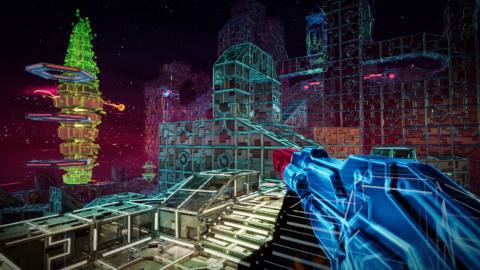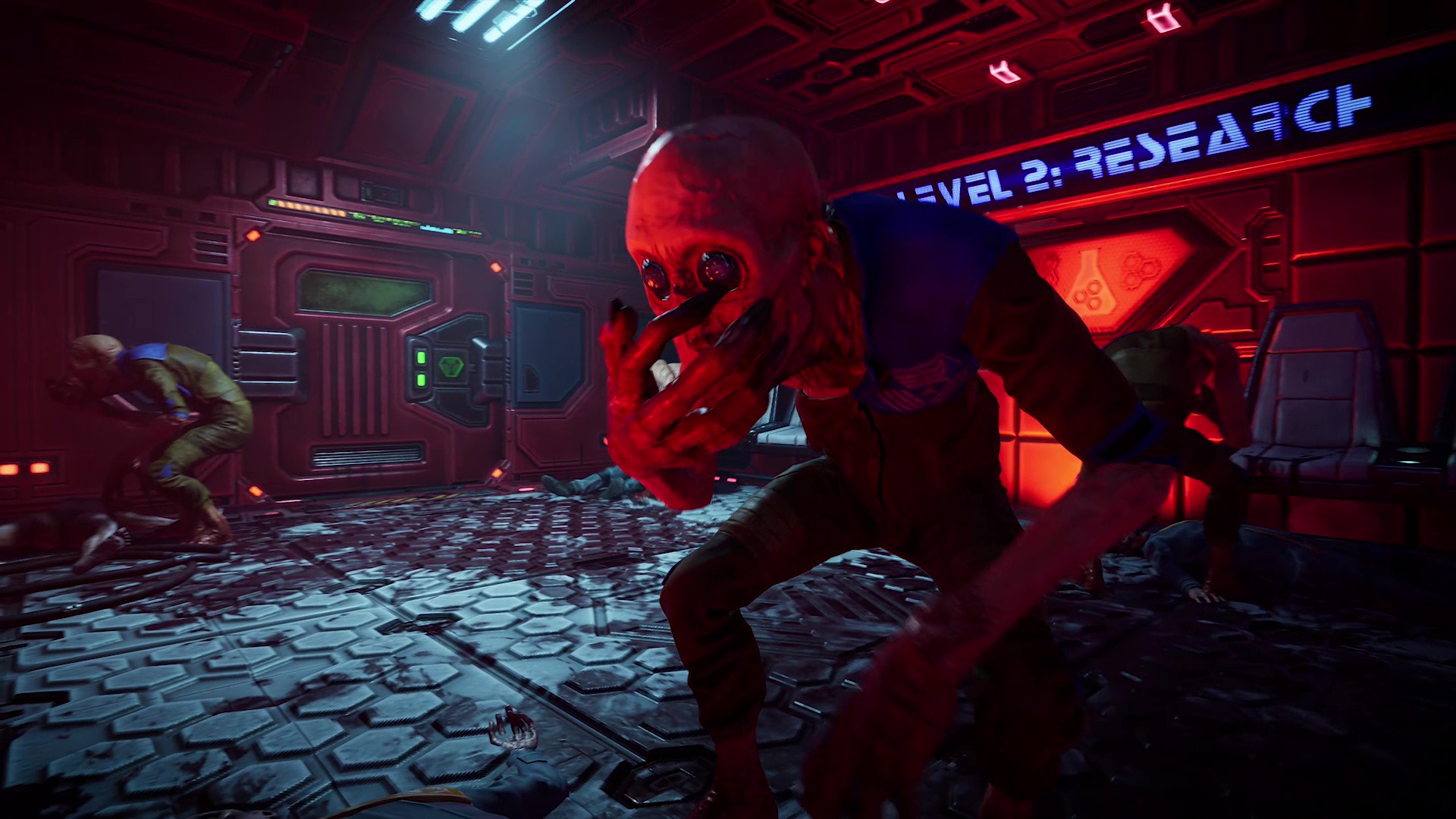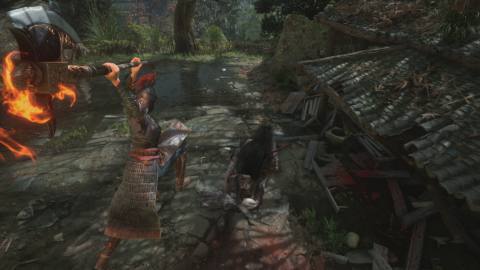With Nightdive Studios’ System Shock remake releasing May 21 on PS5 and PS4, it’s a perfect opportunity to look back and celebrate the original PC game that changed everything.
The original System Shock was developed by Looking Glass Studios and released by Origin Systems on PC in 1994. It was a groundbreaking first-person adventure that has come to be considered one of the most influential games ever. Modern classics such as BioShock, Dishonored, Dead Space, the Deus Ex series, and many others drew inspiration from its pioneering gameplay.
All gameplay and screenshots featured in this article are from Nightdive’s System Shock remake.
System Shock’s distinctive features became the hallmarks of what many now consider to be a genre called “immersive sims”: games with large, nonlinear environments that afford players a wide degree of freedom in how they overcome challenges, whether by combat, stealth, or other means.
To mark the occasion of Nightdive’s System Shock remake heading to PS5 and PS4 next week, we reached out to some of the gaming industry’s most acclaimed developers to highlight the influence of 1994’s System Shock on the first-person shooter genre and trace its impact to the modern day.
“System Shock pioneered the genre that we now call ‘immersive sims’, which combines gameplay elements from multiple genres to immerse players in a simulated experience where their choices matter and they have the flexibility to interact with and unravel the game world.“
– Stephen Kick, CEO, Nightdive Studios
In addition to adding layers of complexity to gameplay systems, System Shock left a lasting impact on video game narrative and storytelling.
“The biggest influence of the original System Shock on BioShock (and of course the sequel we made, System Shock 2) was the sense of a world inhabited by normal people in abnormal situations. We also loved the broad range of tools the game gave the player and, of course, one of the best videogame inventions of all time: the audio log. I still remember the thrill of hearing actual human voices come out of my computer conveying their incredible circumstances in a way that felt so grounded and real. I’ve never made a first-person game without them and I’m not sure I ever will.“
– Ken Levine, Creative Director, Ghost Story Games
System Shock also innovated by using physics to govern the player’s movement and interaction with the world. Players could look up and down, crouch, jump, and lean around corners — hardly groundbreaking stuff by 2024 standards, but revolutionary in 1994.
“The depth of the combat system made even the most common encounters exercises in choice and consequence — the physics of mass and velocity drove everything from weapon recoil to the arc of thrown objects and hit effects on the player character. Even head movement when running and stopping was physics-driven. Because of the focus on physics and a systems-based approach to feature implementation rather than scripting, System Shock was one of the first games that delivered on the promise of emergent gameplay. As a result, no two players had the same playing experience.“
– Warren Spector, Chief Creative Officer, Otherside Entertainment. & Producer, System Shock (1994), Looking Glass Studios, Inc.
Now, 30 years later, Nightdive Studios is expanding upon the classic original game with a fully rebuilt PS5 and PS4 remake that includes updated visuals, new music, and modern controls. The upcoming remake also features Terri Brosius, the original voice actor of AI mastermind SHODAN, one of the most iconic videogame villains of all time.
Discover (or rediscover) a gaming classic when Nightdive Studios’ System Shock remake launches May 21 on PS5 and PS4.








